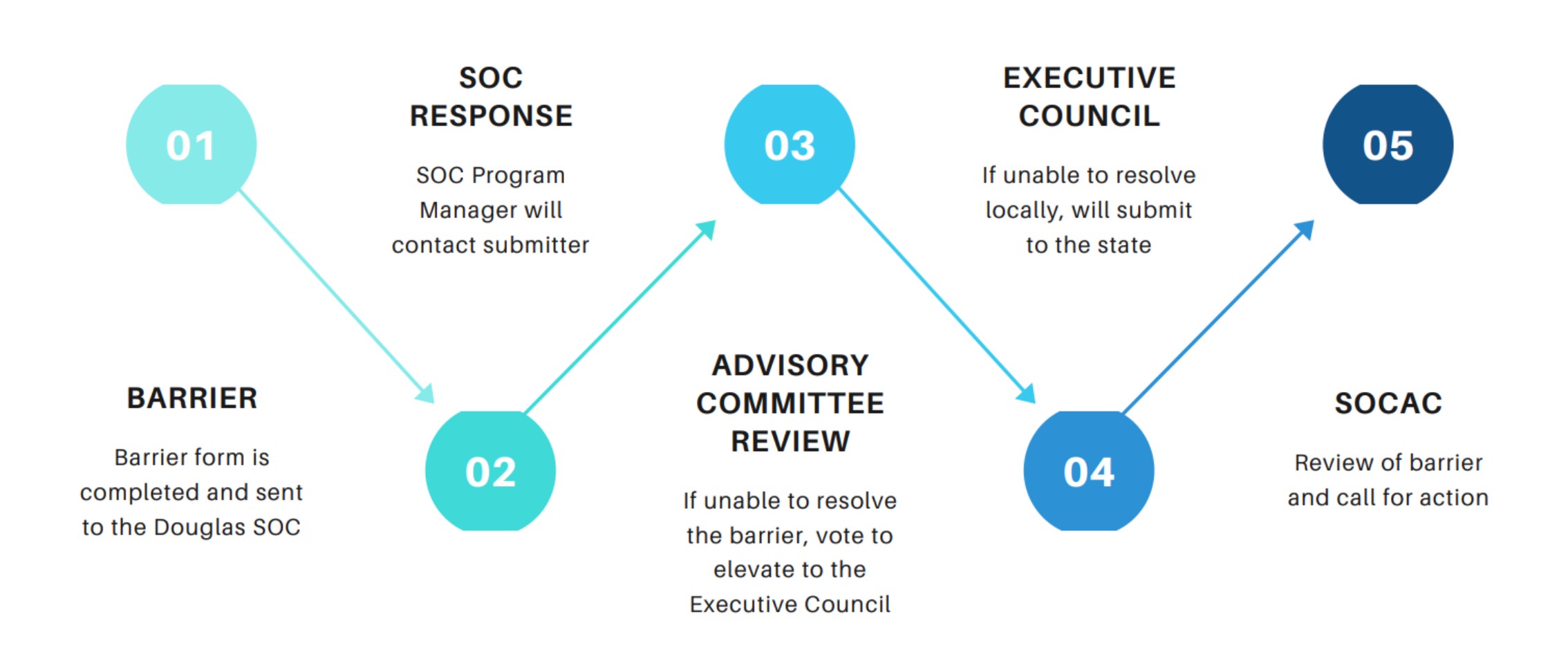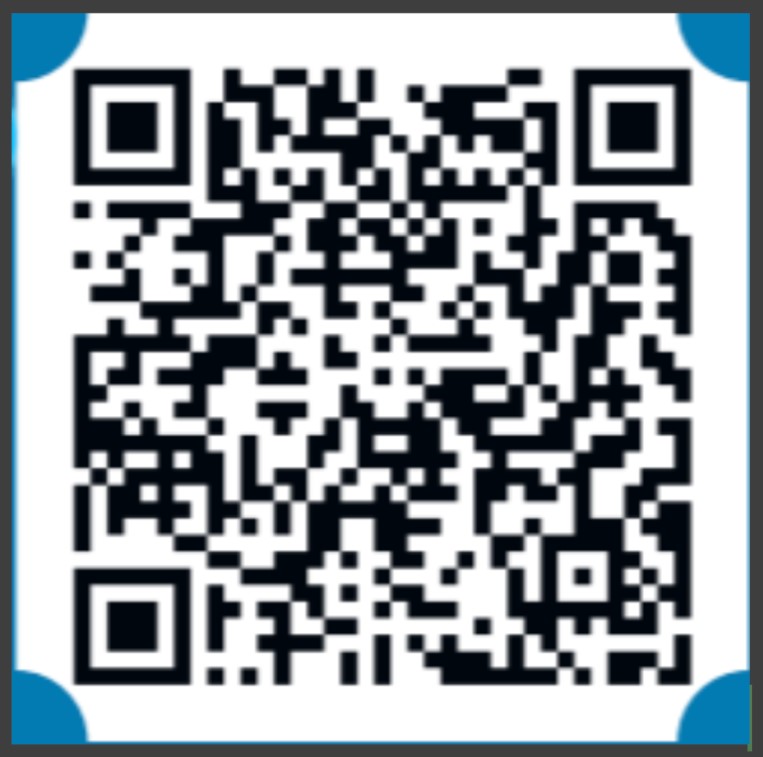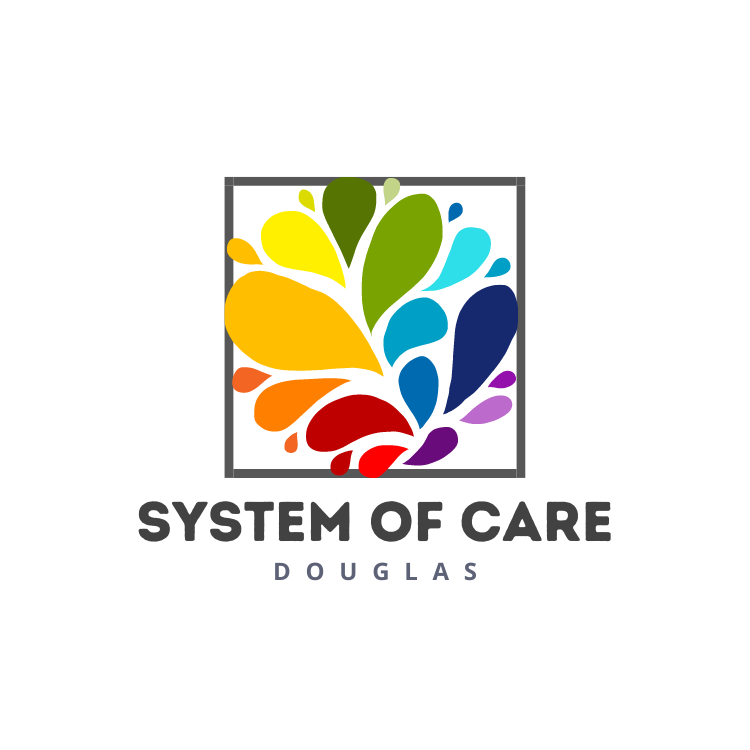What is the System of Care (SOC)?
The SOC is a collaborative network of community-based programs that come together to address community needs, identify barriers faced by children and their families, and uncover unmet needs within the region. We are responsive to community needs and cultivates local leaders through empowering youth and families to share their lived experiences, ensuring that our efforts make a meaningful and significant impact. We are dedicated to supporting youth across the domains of their lives – at home, in school, in the community, and throughout life.
State law (Oregon Revised Statute 418.976) defines “System of Care” as a coordinated network of individualized services and supports to youth that:
- Integrates care planning and management across multiple levels of care;
- Recognizes disability as a natural and healthy part of the human experience;
- Is culturally and linguistically competent;
- Is designed to build meaningful partnerships with families and youth in the delivery and management of services and the development of policy;
- Has a supportive policy and management infrastructure at the state and local levels; and
- Is community-based with relationships at the local level.
OUR PURPOSE
To keep youth and families in our community and surround them with the services and support they need at the right time, in the right place.
OUR MISSION
The System of Care is an organizational philosophy and framework that involves collaboration across agencies, families, and youth for the purpose of improving services and access, and for expanding the array of coordinated community-based, culturally and linguistically competent services and supports for children and youth with emotional and behavioral challenges and their families.
The System of Care Vision
To create an array of services and supports that are youth- and family-driven, community-based, and culturally and linguistically responsive.
Values Guiding Our Mission
- Family driven – The strengths and needs of families guide the types of services and supports provided
- Youth guided – The unique strengths, needs and potential of each child guide their individualized services and supports
- Community based – Services are available in the community within people’s neighborhoods and homes. Support is provided as close to a child’s home and in the least restrictive environment possible.
- Culturally and linguistically responsive – Services and supports are available that match a family’s culture, race, ethnicity, and language.
- Coordinated and Collaborative: Community agencies work together to support families
- Individualized and Strength-Based: Support should be tailored to the individual needs of families and youth to promote resilience and resourcefulness. We believe all families are strong in their own unique ways.
- Trauma-Informed: Services recognize past trauma and adopt practices to prevent and avoid creating new trauma.
“I am excited about the work the System of Care is doing to support those who are working with families, caregivers, and children/youth, to gather their voices. Parents, caregivers, and children/youth voices of children and youth are critical for building resources and services that support healthy, happy, and resilient communities. I can’t wait to see what the next year brings for the System of Care and our community.”
– Vanessa Pingleton, Early Learning Program Facilitator for Douglas, Klamath & Lake Counties
Advisory Committee
Individuals who work with youth and families, supervisors, mental health providers, and public partners gather on the third Tuesday of each month. During these meetings, the advisory committee examines barrier submissions from community members. They review these barriers and suggest solutions and recommendations to address their identified needs. The committee members’ expertise enhances the problem-solving process by exchanging program information, expanding the range of potential solutions, and fostering collaboration. If the committee cannot propose solutions to certain barriers, they are referred to our Executive Council for further review.
Some of the SOC Advisory Committee responsibilities are:
- Review, address, and escalate system barriers
- Forge meaningful cross-system partnerships
- Facilitate collaboration to improve system navigation
- Identify gaps in services and support array
Committee Members include: ESD, Adapt Integrated Health Care, Family Faith and Relationship Advocates, Family Development Center, Creating Community Resilience, Douglas County, CASA
The SOC Advisory Committe meeting occurrs on the 3rd Tuesday of every month, from 1:30 to 3:00, via Microsoft Teams.
Executive Council
The Executive Council is comprised of providers, local public child servicing agencies, and representatives of UHA and includes participation from youth and family members. The Executive Council meets each month to develop and approve policies, review project outcomes, and address any community needs that have been identified.
Some of the SOC Executive Council responsibilities are:
- Address barriers that are elevated and unresolved, proposes strategies to promote resolution
- Promote resource development targeting unmet community needs
- Advise on policy development
Council Members include: Adapt Integrated Health Care, ESD, DHS, Family Faith and Relationship Advocates, Phoenix School, Peace at Home
The SOC Executive Council meeting occurs on the 3rd Monday of every month, from 3:30 to 5:00, via Microsoft Teams.
Statewide SOC Advisory Council
The Statewide Advisory Council’s role is to address statewide policy development, funding strategy recommendations, and planning. The Council’s goal is to improve the effectiveness and efficacy of child-serving state agencies and the continuum of care that provides services to youth. The Statewide SOC Advisory Council is a cross-system group of governor appointed representatives, including youth, family, psychiatrist, psychologist, pediatrician, juvenile department director, county mental health program director, and representatives of Judicial Department, DHS, OYA, OHA, Dept. of Education, CCO, tribal communities, Oregon’s federally mandated disability protection and advocacy agency, commercial insurance, child-serving agencies, youth advocacy agency, and family advocacy agency, among others.
System of Care Breakfast
Offers an opportunity to collaborate, network, and engage with the community over breakfast on the third Thursday of each month. UHA and Douglas ESD co-host this meeting which focuses on building community and creating new opportunities to learn from partners about their organizations, highlighting the programs and resources available to youth and families.
SOC breakfast is currently meeting in the Douglas County Library Ford Room once a month, on the third Thursday, from 07:30 – 9:00 AM.
Barrier Submission Form

The System of Care focuses was on identifying, tracking, and addressing the obstacles experienced by youth and families when accessing support systems designed to serve them. We seek to break down these barriers by either addressing them through our local System of Care or escalating them to decision-makers with more influence at the state level. The barrier submission form is a way for you to share these problems, or “barriers,” and recommend ways to fix them. These forms are reviewed monthly by members of the System of Care, who work together to address the problems and create change.

Get Involved!
The Douglas System of Care wants to include stakeholders from marginalized and vulnerable populations in its governance structure, ensuring their interests are represented. Families and youth in Douglas County have a unique opportunity to join our vibrant community, where we prioritize their needs and aspirations. By coming together, we can promote growth, resilience, and a better future for our children.
If you are interested in learning more or becoming part of this compassionate and dynamic community, please email us at DouglasSOC@umpquahealth.com.
We are excited to connect with you.
